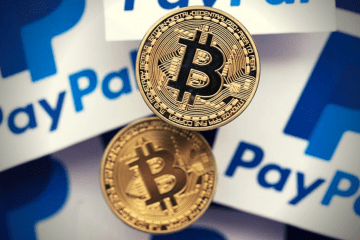Ripple hit with yet another XRP class-action lawsuit
- Bitcoin Manipulation Abatement, LLC has filed a lawsuit against Ripple and its CEO Brad Garlinghouse alleging securities laws violations.
- The lawsuit claims XRP was sold and marketed as a security.
- Ripple currently faces multiple lawsuits from investors in California claiming damages over the sale of XRP.
A new class-action lawsuit has been filed against crypto giant Ripple and its CEO Brad Garlinghouse alleging securities laws violations regarding the sale and marketing of XRP.
The lawsuit alleges that Ripple created the XRP cryptocurrency for the sole purpose of making its founders and a few other people rich.
The suit, filed on Friday in the Northern California District Court, claims that XRP, the third largest cryptocurrency by market cap, according to data collected by Nomics, was marketed to the public to raise more than $1 billion. In order to drive demand, Ripple made “a litany of false and misleading statements regarding XRP,” the suit alleges.
A curious plaintiff
The complaint was filed by attorney Pavel Pogodin through his company, Consensus Law, located in Isla Verde, Puerto Rico. The plaintiff is Bitcoin Manipulation Abatement LLC, a curious entity with virtually no online presence. According to public records, the entity was set up in March 2019 with Pogodin himself listed as the “resident agent.”
“[Y]ou do have to chuckle at the irony of a plaintiff that looks like it was created as a litigation vehicle making this charge,” Stephen Palley, a partner with the Anderson Kill law firm, tweeted earlier today.
Interestingly, Bitcoin Manipulation Abatement was also the plaintiff behind another class-action lawsuit filed in November against crypto derivatives exchange FTX. That suit, which demanded $150 million from the exchange in exemplary and punitive damages, was dismissed a month later.
Ripple faces multiple class-action lawsuits from investors in California who are claiming damages over the company’s alleged failure to register XRP as a security with the SEC and provide the public with the appropriate company documents and disclosures. This new lawsuit echoes many of the same claims made in previous lawsuits against Ripple.
Is XRP a security?
XRP is a security because the purchasers were led to believe they could expect a profit and were told that XRP would be a long-term growth asset, the complaint alleges. The law firm for the plaintiff also maintains that XRP is not a currency because “there are no products or services that can be purchased with XRP.”
Unlike decentralized cryptocurrencies like Bitcoin and Ethereum, which are mined by a decentralized network of nodes, all 100 billion XRP in existence were created in a centralized manner, without incurring any significant costs by Ripple in 2013, according to the complaint.
At that time, 20% of the total XRP supply was given to the founders, while the other 80% was retained by Ripple itself. Those 80 billion XRP were put into an escrow, which Ripple has contended in the past that it can not touch. A portion of XRP are released from escrow each month, and Ripple, in the past, has sold XRP on cryptocurrency exchanges. (It halted this practice last year).
“Defendants have since earned massive profits by selling off XRP to the general public, in numerous offerings, having sold $1.1 billion in XRP to retail customers in exchange for legal tender cryptocurrencies, (most often Bitcoin and Ethereum)” the complaint reads.
The complaint goes on to contend that Ripple’s sole value proposition as a company depends upon the promotion of XRP, “yet XRP is entirely or essentially pre-functional and purchased by investors in anticipation of profit based on the efforts or Ripple.”
Ripple has in the past vigorously denied similar allegations. In March last year, Ripple CTO David Schwarch took the stage at the annual SXSW festival in Austin, Texas, and presented his arguments for why XRP should not be considered a security.
The US Securities and Exchange Commision has not taken a position on whether XRP is a security.


